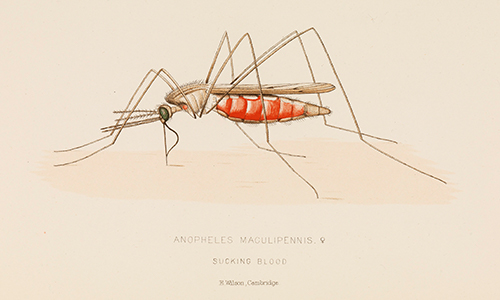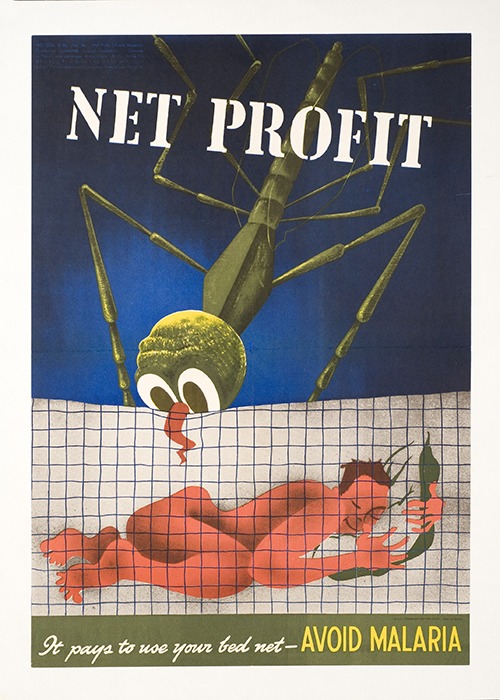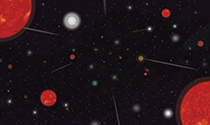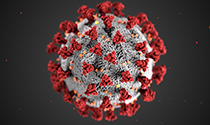|
|
|
|
|
|
|
|
|
|
| |
But some mosquitoes are even more harmful—they carry pathogens that cause diseases like malaria, Zika virus, dengue, yellow fever, and West Nile virus. To manage the danger and worry that come with summer swarms, scientists attack the problem at the human, bug, and microbe levels. |
|
| |
|
|
|
|
|
|
|
| |
| |
|
|
| |
This illustration from the Journal of Hygiene (1901) shows a female mosquito of the genus Anopheles. There are about 430 Anopheles species, and 30–40 of those transmit human malaria. (Illustration courtesy the Wellcome Collection) |
|
| |
|
|
|
|
| |
|
|
|
|
|
| |
More than 400,000 people died of malaria around the world in 2018. There is a malaria vaccine, but over a five-year trial, it prevented only 4 in 10 cases in children who received the immunization. Scientists in the Pritzker School of Molecular Engineering have developed a more effective vaccine that targets specific cells for a stronger immune response. How did they deliver the drug to the immune system sweet spot? By adding sugar. |
|
| |
|
|
|
|
|
|
|
|
|
|
|
|
|
|
|
|
|
|
|
|
|
|
|
|
|
|
|
|
|
|
|
|
|
| |
| |
|
|
| |
A poster printed by the US Government Printing Office in 1946 advises citizens to avoid malaria by sleeping under a mosquito net. (Image courtesy the US National Library of Medicine) |
|
| |
|
|
|
|
| |
|
|
|
| |
Up to 65 percent of American soldiers serving in the Pacific theater during World War II reportedly caught malaria. Mosquitoes posed as much a threat as enemy combatants, but they were a low priority in the face of war. |
|
| |
|
|
|
| |
Already carrying up to 75 pounds of equipment, many soldiers dumped what they deemed useless antimalarial meds, particularly during retreat. So the US military began a public health campaign. The National Library of Medicine has a collection of posters and calendars—many objectionable by today’s standards—urging soldiers to pack their meds and nets and take precautions against the enemy mosquito. |
|
| |
|
|
|
|
|
|
|
|
|
| |
COVID-19:
UChicago is working hard to keep you safe, healthy, and informed.
|
| |
|
|
|
|
|
| |
|
|
|
|
|
| |
| |
Sign up to receive µChicago monthly. |
|
|
|
| |
|
|
|
|





